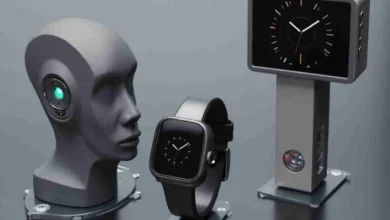The Evolution of Power Adapter Factories: From Traditional to Cutting-Edge

The journey of power adapter factories has been a fascinating one. From their humble beginnings in small workshops to today’s sprawling, high-tech facilities, these factories have consistently evolved to meet the demands of advancing technology.
In this article, we’ll explore how modern power adapter factories, including industry leaders like Oushangmei AC Adapter Factory, have revolutionized production techniques, embraced sustainability, and pushed the boundaries of innovation.
The Origins of Power Adapter Manufacturing
Decades ago, manufacturing power adapters was a labor-intensive process, reliant on manual assembly and basic materials. Factories operated on a small scale, producing limited quantities to meet local demands.
These early adapters, while functional, often lacked the efficiency and safety standards we take for granted today. However, the rapid growth of electronic devices in the late 20th century paved the way for larger, more sophisticated manufacturing setups.
The Modern Power Adapter Factory
Today’s power adapter factories are a far cry from their predecessors. Facilities like Oushangmei Power Adapter Factory exemplify the blend of automation, precision, and sustainability that defines modern manufacturing.
Key Features of Contemporary Factories
Advanced Machinery
Automated assembly lines ensure consistent quality and significantly reduce human error. Precision tools allow for the creation of compact, high-performance adapters.
Quality Assurance
Rigorous testing protocols are now standard, ensuring that every adapter meets international safety and efficiency standards.
Sustainability Practices
Many factories, such as Oushangmei, are adopting eco-friendly practices, including:
- Using recycled materials.
- Minimizing waste through precision engineering.
- Reducing energy consumption during production.
Customization Capabilities
Modern factories cater to a global clientele with diverse needs, offering customizable solutions for various industries, from medical devices to consumer electronics.
Challenges in the Industry
Even with technological advancements, power adapter factories face significant challenges:
1. Supply Chain Disruptions
Global events, such as the COVID-19 pandemic, highlighted vulnerabilities in supply chains, affecting the availability of raw materials.
2. Counterfeit Products
The rise of counterfeit adapters has led manufacturers to invest heavily in anti-counterfeiting measures and consumer education.
3. Environmental Concerns
Meeting sustainability goals while maintaining affordability is an ongoing struggle for many factories.
The Role of Innovation
Factories like Oushangmei Power Adapter Manufacturer are setting the bar high by embracing innovation:
- Gallium Nitride (GaN) Technology: This allows for smaller, more efficient adapters with minimal heat generation.
- Wireless Charging Integration: Factories are producing adapters compatible with wireless charging technologies, catering to the growing demand for cord-free solutions.
- IoT Connectivity: Smart adapters that can monitor and adjust power output are becoming more common.
Why It Matters to Consumers
The advancements in power adapter manufacturing directly benefit consumers:
- Enhanced Safety: Modern adapters come with built-in safeguards against overheating, overcharging, and short circuits.
- Energy Efficiency: Adapters are designed to consume less power, lowering electricity bills and environmental impact.
- Durability: High-quality materials and superior craftsmanship ensure a longer lifespan.
Spotlight on Oushangmei’s Role in the Industry
As a leader in the field, Oushangmei Power Adapter Factory stands out for its commitment to innovation and quality. Their state-of-the-art facilities incorporate cutting-edge technology, while their team continually pushes the boundaries of what power adapters can achieve.
Their approach includes:
- Collaboration with Clients: Offering tailored solutions for unique needs.
- Global Reach: Catering to clients across multiple industries and continents.
- Sustainability Initiatives: Pioneering eco-friendly practices that set an example for the industry.
Looking Ahead: The Future of Power Adapter Factories
The industry is poised for exciting developments, including:
Carbon-Neutral Manufacturing
Factories will increasingly rely on renewable energy sources, reducing their carbon footprint.
Smart Manufacturing
The integration of AI and IoT in production processes will improve efficiency and reduce waste.
Modular Designs
Future adapters will feature replaceable components, extending their usability and reducing e-waste.
Universal Standards
Efforts to create universal compatibility across devices will simplify production and benefit consumers worldwide.
Conclusion: A Dynamic Industry
The evolution of power adapter factories reflects the broader changes in the tech industry—balancing innovation, efficiency, and sustainability. Manufacturers like Oushangmei lead the way, ensuring that the humble power adapter continues to adapt to the demands of our increasingly connected world.
By investing in advanced facilities and forward-thinking practices, these factories are not just meeting today’s challenges—they’re shaping the future of power technology.




